Doc Coyle: “There were only two solos on each of our first two records… on this album, I did eight!”
The Bad Wolves six-stringer on how modern technology nurtured his improvisational soloing on new record Dear Monsters, and why former guitarist Max Karon remains their secret riff weapon
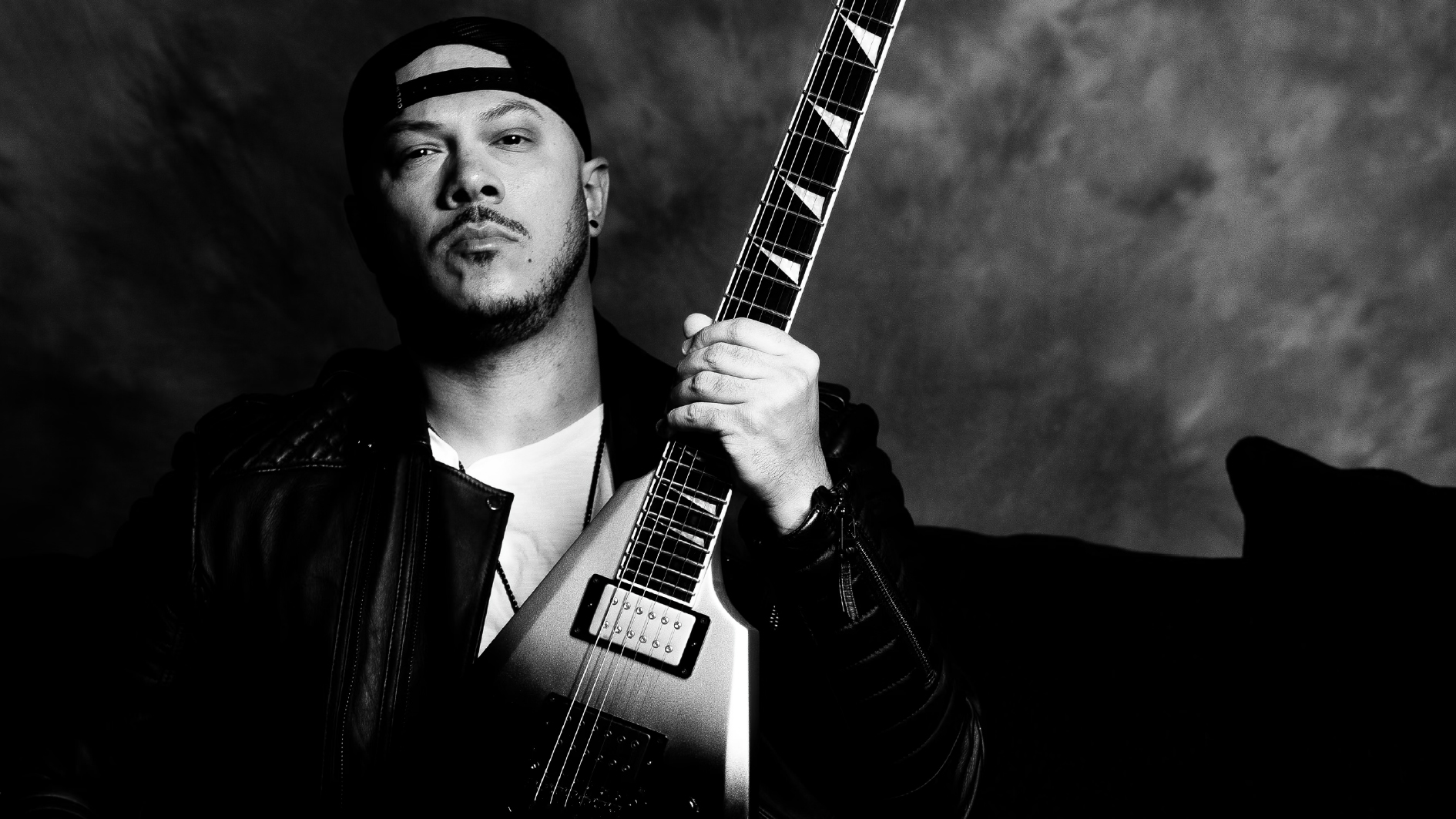
“Listen, this year has not been without its challenges, and actually you can extend that to the last two years,” begins Bad Wolves guitarist Doc Coyle. He’s referring to a number of things – his band’s well-documented acrimonious split with ex-frontman Tommy Vext at the beginning of 2021, the ongoing ramifications of COVID-19 since last spring and, perhaps to a lesser extent, the state of America in general.
There are causes for celebration, however. The LA metal group will be releasing their third album, titled Dear Monsters, on October 29 – a fine achievement considering the many great odds stacked against them.
“We have to remember we’re not alone, the entire world has had their lives shaken up, whether that’s professionally, personally, mentally or emotionally,” he adds, before tackling things more directly. “This album is a result of trying to make the best out of a non-ideal situation. The fact it’s come out feels like quite a validation of those efforts!”
Technically, the band were only without a singer for one day. As news of a vacancy within their ranks spread around the world, Daniel “DL” Laskiewicz was already putting the finishing touches to the audition tape that would ultimately win him the spot.
He’d been well-acquainted enough with the band to co-write a song on their second album – so it was no wonder Coyle, co-guitarist Chris Cain, bassist Kyle Konkiel and drummer John Boecklin felt he would be a natural fit. As it turns out, it wasn’t even the first time he’d asked to join the band...
“I’ve known DL since 2004, back when he was in a band called The Acacia Strain from Massachusetts who played with my old band God Forbid,” explains Coyle.
“He was a big fan of us and we became fast friends. We toured a couple of times together and he was always a kindred spirit. He was a creative driving force in that band, which he left to focus on production and songwriting. He became more of a behind-the-scenes type of guy.
Get The Pick Newsletter
All the latest guitar news, interviews, lessons, reviews, deals and more, direct to your inbox!
I was thinking, ‘Man, we’ve only been without a singer for one day and we already have someone more than close enough!’
“He was on my radar as a singer back when Bad Wolves came out, he randomly hit me up on Instagram, raving about the band and lobbying to be a third guitar player. He loved the band that much! He sent me a cover he’d done of Skeleton Song by Sevendust and I was like, ‘That’s you?!’ I was pretty blown away.
“By the time we did the second Bad Wolves album, he’d formed a good relationship with our drummer John Boecklin, who is kinda the main driving force behind this band creatively, and ended up writing a chorus for our song The Consumerist.”
So he was already pretty much at the front of the queue?
“Yeah, when the split with our vocalist happened, he was already at the front of the line. Tonally his voice reminded me of Howard Jones from Killswitch Engage. What’s ironic about that is that the one guy everyone in the comment sections kept saying we should get was Howard! [laughs] Within 24 hours of us not having a vocalist, DL had already sent us a demo of him singing our songs. And it was pretty spot on.
“I was thinking, ‘Man, we’ve only been without a singer for one day and we already have someone more than close enough!’ From that recording I knew we were in a pretty good spot but we still went ahead on an exhaustive search, receiving dozens of demos with other people’s vocals over our instruments.”
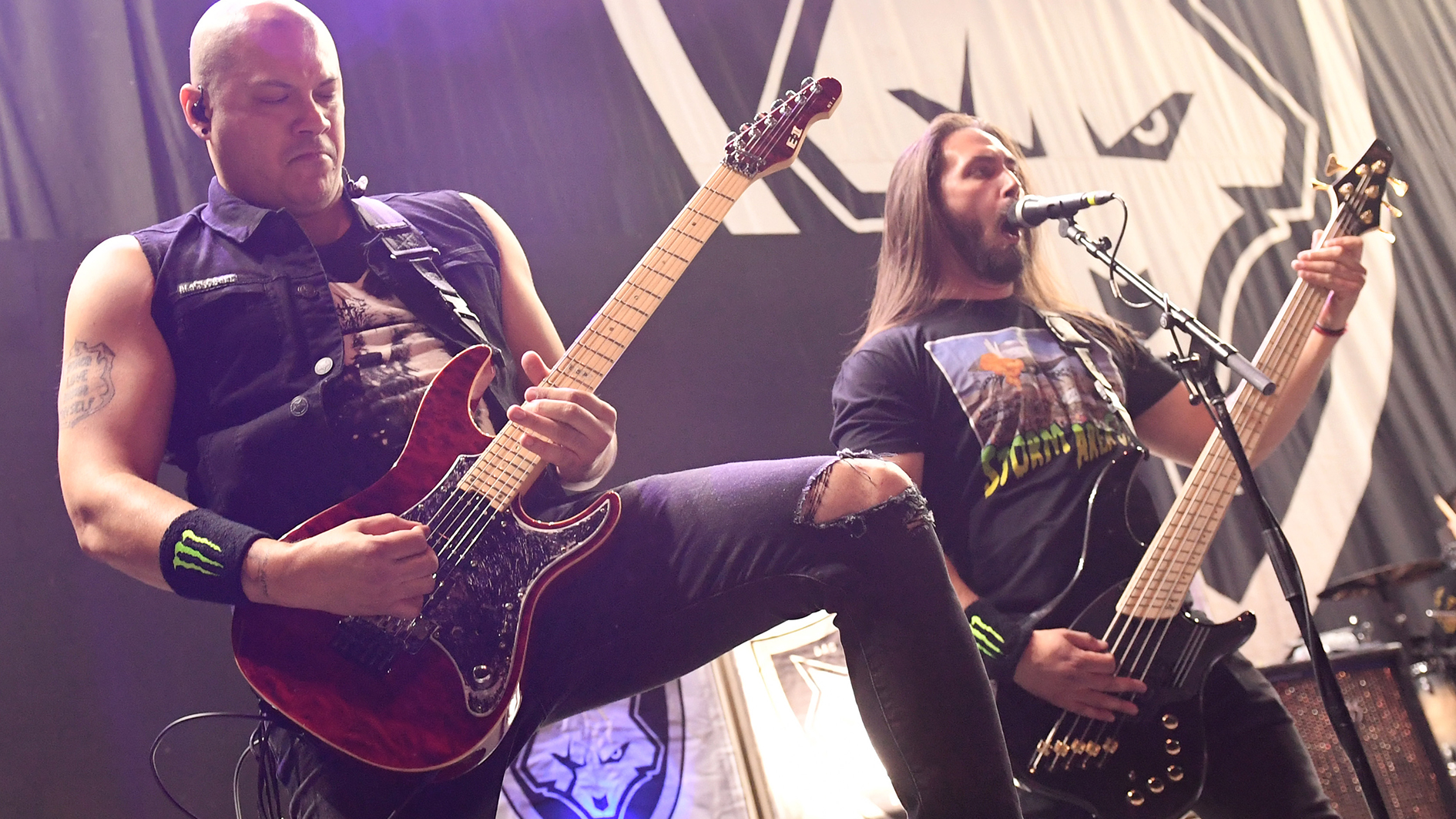
That’s interesting. How did you separate the bad from the good?
“There was a filtration process. We got a lot of great submissions. For us, it was more than just doing the job, it was about having the right tonality to fit into the band. We whittled it down to six people and we saw them all in person, because people can use a lot of studio trickery we wanted to see if they could actually do it in the room.
“Then we had three people left and had them come in and track some new material with our producer. It’s one thing singing old songs but really, for us, it was about the future.
“It was a unanimous decision that DL would be the best fit, not just for his vocals, but his personality and vibe. His talent and skill level outside singing is incredible, too – he’s a tremendous guitar player, producer and songwriter. There’s even more creative power in this band. The transition has been stressful but we’ve been lucky.”
What exactly were you using in terms of guitars and amps on the latest recordings?
“So Bad Wolves is a very strange band. There used to be a guy in the band called Max Karon, he also plays in Once Human with Logan Mader, of Machine Head fame. Max was in this band before it was called Bad Wolves. Our first album, Disobey, had a lot of riffs and music written just by John and Max. By the time they’d finished the record, Max decided he didn’t want to be ‘in’ the band but he’s always been our behind-the-scenes guy.
You’ll be amazed how many different versions of these songs there are before the final product
“He’s like our [Swedish producer/songwriter] Max Martin. We’ve always written with him and recorded all the guitars and bass with him. In many ways, the sound of the band is Max… he’s like our secret weapon. What he used on this album was a Revv amp, I forget the exact model, going through a Two Notes Torpedo. He has a very unique tone.”
But you played on the album as well, right?
“Yeah, there are songs on the record we made with our producers, too – Joseph McQueen and Josh Gilbert, who is also in As I Lay Dying. We were using a lot of plugins, like the Neural DSP Archetype: Nolly on tracks like Lifeline and Gone.
“When you make an album over the course of a year and a half, it’s difficult to remember the rigs for each song. Because of the pandemic, a lot of it was done remotely using that Audiomovers app.
“I’d have some riffs, we’d jump on FaceTime and I’d show the riffs to Max, and he would then play it because he had everything set up.
“Even if it was my riff, he’s such an amazing guitar player and producer, it was a really easy system and very productive. Because his tones are so good, our demo process basically becomes our recording process.
“We’ll work on a tune, work on some vocals and refine it, and then we’ll come back again and again. You’ll be amazed how many different versions of these songs there are before the final product.”
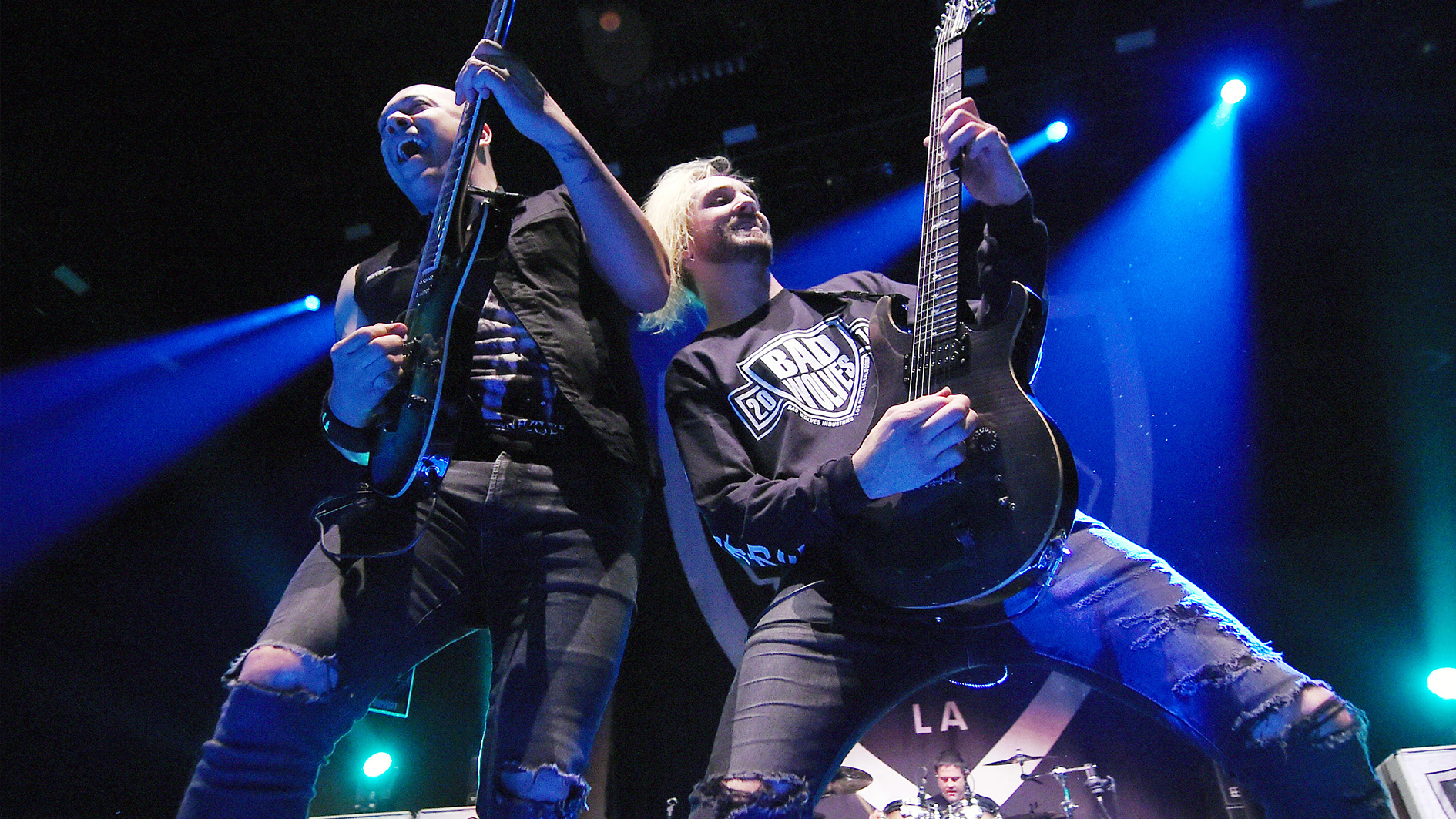
So it was a real creative collaboration, in that sense?
“Yeah – and then there are songs like Springfield Summer where DL had done a bunch of guitars in his studio. It was one we’d written later on after he’d joined the band. So it was an odd process. All of my guitar solos were done at home through my EVH amp and into my Two Notes Torpedo. And some of the background guitars, like what you hear in the intro of House Of Cards, are from my original demos.
“Sometimes you get it right the first time. Technology is so advanced now, your demo process can ultimately turn into the recording process, which is damn cool.”
House Of Cards has some interesting pushes and pulls in its rhythms, which almost gives it a djent bounce...
“That’s one of my songs. What you’ve got to understand about my role in Bad Wolves is that creativity was always supplementary, while with my other bands like God Forbid and Vagus Nerve, I was always the main songwriter. In this band, John [Boecklin] is the main guy when it comes to the instrumentation. When I joined the band, I was super-intimidated to try and write Bad Wolves songs, because the riffing and style was already pretty established when I came in.
I tend to write riffs around chord structures, which is what gives it melody. That’s just part of my style
“So I’ve been working on riffs with this kind of structure for over a year and really refined it. I guess it was me trying to interpret a classic Bad Wolves riff but through the lens of what I would play. My riffs, even going back to God Forbid, always have a lot of melodic movement – I tend to write riffs around chord structures, which is what gives it melody. That’s just part of my style.”
And Bad Wolves is more groove metal-led, by comparison?
“Yeah, Bad Wolves is all about the groove and the bounce. And that song was me writing while thinking about how it would come across live. Seeing that crowd bop and bounce and jump. That whole song is really configured around the heaviness of the band while also tying together the more commercial elements.
“One of my goals for this record which I felt the band hadn’t really achieved on the previous records was making it seamless between those two ends of the spectrum – real heaviness and these crossover parts. I wanted more songs to contain all of these elements within one track and still feel natural.”
The House Of Cards solo has pretty speedy alternate picking drills, which almost have a Paul Gilbert feel at points...
“Truth be told, I don’t really consider myself a shredder. It’s just about what’s right for the song. Sometimes you just need something with that speed and energy, because it feels ferocious. It’s funny you mentioned Paul Gilbert, because I learned how to alternate pick through his old videos.
“There’s that run that goes on frets nine, 10 and 12 on the D string catching the ninth on the G string before coming back down. And then he would sometimes double the last two notes before coming back down. It’s something to this day that’s at the bedrock of what I do.
On the first two Bad Wolves records, there are only two solos on each record – on this album I did eight!
“When I first started playing guitar, I felt like I hit a plateau with learning solos. Marty Friedman solos and Dimebag solos were too hard for me. I could learn a little Van Halen and some Randy Rhoads, that’s kinda where I peaked out.
“When I was 23 or 24, I started getting into more Swedish metal, stuff like Arch Enemy and In Flames. That group of bands really inspired me to hammer down and see how far I could take things technically as a lead guitar player that could hold it down without feeling limited. I’ve put the time in.”
What’s the hardest thing about writing guitar solos, do you think?
“Keeping it fresh and not repeating yourself or playing leads that only impress guitar players. With heavy metal, I’ve always felt there was this sports-like competitiveness. You feel the pressure when it’s time to make a record because your buddy just put one out and they’re killing it. Sometimes it feels like you’re just keeping up with the Joneses.
“When God Forbid disbanded, I went through this whole period of learning how to play rock music and learning about theory and improvisation. By the time this record came out, I felt ready for it. On the first two Bad Wolves records, there are only two solos on each record. This band isn’t known for that. There would be songs where I wouldn’t even have an opportunity to do a guitar solo. And on this album I did eight!”
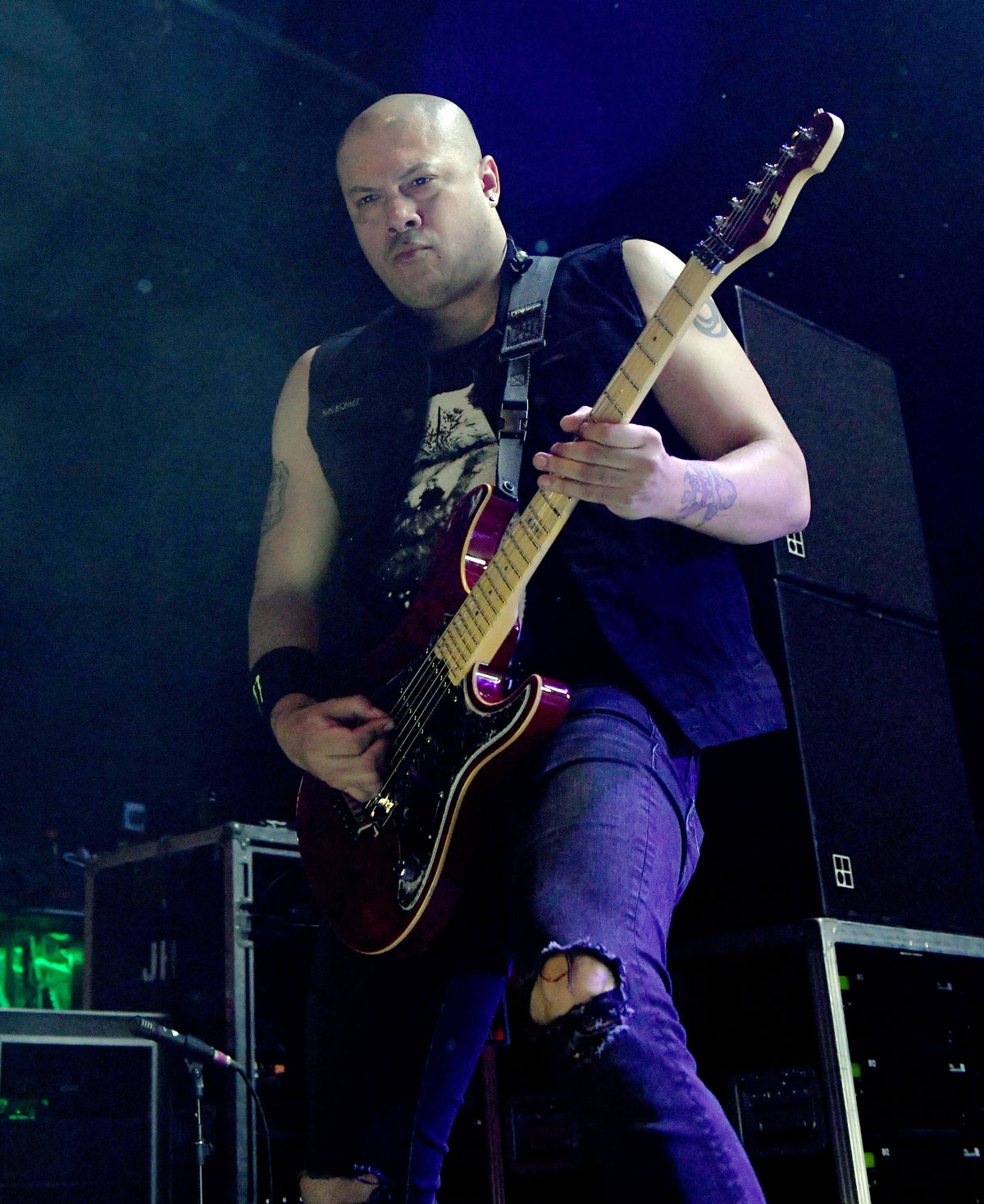
That’s a big jump! How did you go about composing them?
“It was definitely a different approach. I found being able to work on my own, with my own setup, I was able to improvise and go nuts for a number of takes, and then cut together three or four sections I liked the best. I still don’t know how to play these solos. I will have to transcribe them to learn what I’m doing – but that’s why they have more flair and heat.
“Discovering this has been a new kind of freedom with my playing. Some parts are composed and melody-driven and others are complete improv, almost miming the narrative of the song. Learning how to edit and cut my solos together was a big breakthrough! Instead of nailing a part, I just let myself play and some cool shit will happen that I could have never planned. It’s allowed me to trust myself. I don’t have to be perfect.”
You’ve said in the past there’s a chance of God Forbid coming back. Is that still likely at this point?
“There’s definitely work being done and efforts being taken to vet those potential shows. It’s one of those things where I’d rather not hype people up too much until it’s actually solid, but it’s definitely something I’d love to pursue.
“I’ve never been someone who lives in the past or tries to rehash the old days, but there does seem to be some interest, at least from my estimation – though you never know what the internet is really saying.
Tosin Abasi is one of the most iconic guitar players of this era. He is brilliant as a musician, but I also think he’s one of the smartest guys I’ve ever met
“If it did happen, I do think a lot of people would appreciate it. I still have a good relationship with the guys in the band, and just hanging out, playing the songs we wrote together would be a fun experience. We’re taking it one step at a time.
“When these things go dormant, reviving the patient, so to speak, is a bit more of an undertaking than people might think. It’s not just booking a show or tour. Everyone has their own lives, people have wives, kids, jobs and mortgages. It’s not easy organizing schedules. I’d rather do it correctly and right than do it sooner and be in a rush.”
You’ve also been keeping busy with The Ex-Man Podcast, which is nearly 200 episodes in now. Who have been your favorite guests?
“We’ve done quite a few! I’ve been doing that for the last five years, so there are already things I’ve forgotten. You end up doing so much that it kinda loses you a little bit. I guess Tosin Abasi, one of the most iconic guitar players of this era, felt like the coolest. He is brilliant as a musician, but I also think he’s one of the smartest guys I’ve ever met.
“It’s cool talking to talented people but it’s even cooler when you realize that part of the reason why they’re so good at what they do is because they’re just brilliant. They’d be successful at anything they’d put their mind to.
“Having a podcast is great because you can veer into things about social issues or things with political overtones, talking to others in a really detailed and insightful way. It’s a privilege to not only have a conversation but also allow people to hear it. You almost feel like you are doing a service, bringing other people into meaningful discussions.
“Another big one was Dave Lombardo from Slayer, we talked for about three hours. I got to ask my hero every question I’ve wanted to ask him… I had to pinch myself!”
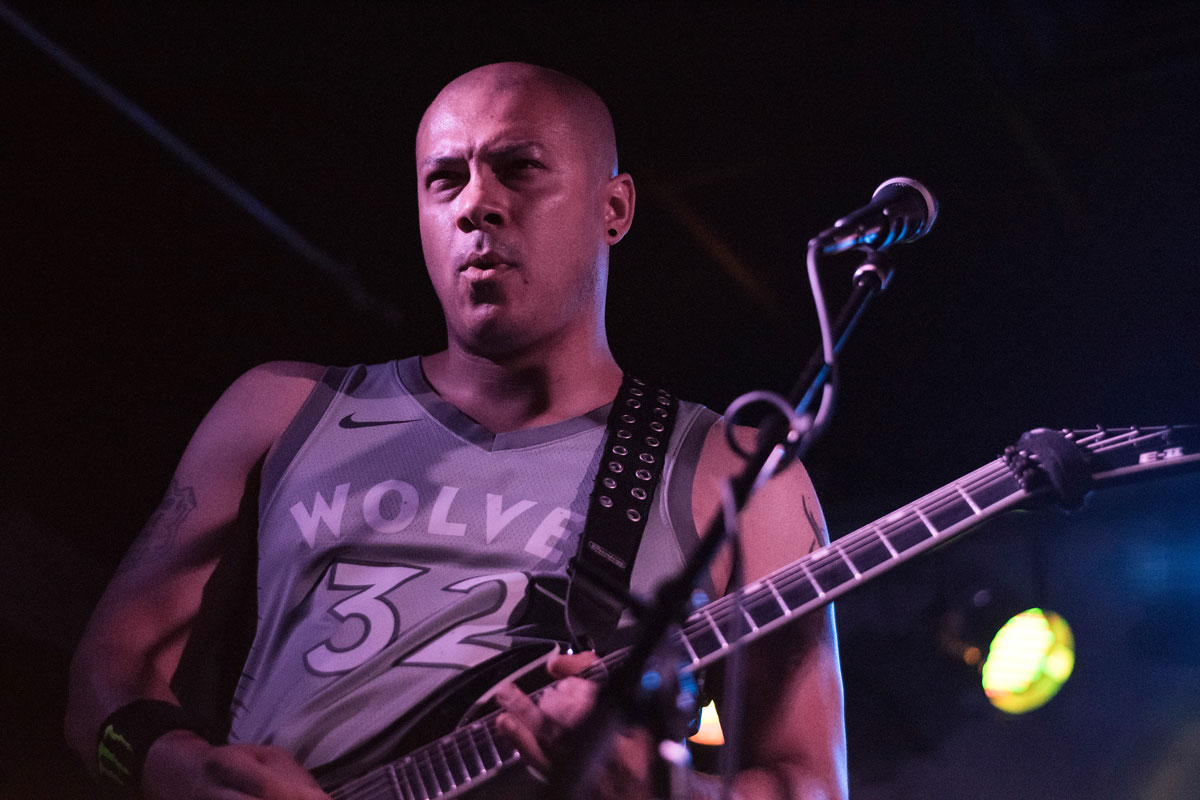
You’ve also done a fair amount of writing over the years...
“Yeah, though I haven’t done it regularly in a while, mainly because of time issues. One of the things that allowed me to write and become someone who was known for voicing opinions was not being in a busy band. I’ve written about race and politics. I wrote something about Phil Anselmo when all that stuff went down. I felt like I had to.
“But after what happened with Bad Wolves and the member change, a lot of things have started to feel like a culture war. Being overly opinionated on things can be a distraction from the music. With the current political environment we’re in, everything feels so divisive. When you’re part of a band, it’s a collective and what you say reflects on everyone. You have to be that much more responsible. I love writing but it will need to be the right timing to approach it properly.”
- Bad Wolves' new album Dear Monsters arrives October 29 via Better Noise Music.
Amit has been writing for titles like Total Guitar, MusicRadar and Guitar World for over a decade and counts Richie Kotzen, Guthrie Govan and Jeff Beck among his primary influences as a guitar player. He's worked for magazines like Kerrang!, Metal Hammer, Classic Rock, Prog, Record Collector, Planet Rock, Rhythm and Bass Player, as well as newspapers like Metro and The Independent, interviewing everyone from Ozzy Osbourne and Lemmy to Slash and Jimmy Page, and once even traded solos with a member of Slayer on a track released internationally. As a session guitarist, he's played alongside members of Judas Priest and Uriah Heep in London ensemble Metalworks, as well as handled lead guitars for legends like Glen Matlock (Sex Pistols, The Faces) and Stu Hamm (Steve Vai, Joe Satriani, G3).
“We hadn’t really rehearsed. As we were walking to the stage, he said, ‘Hang on, boys!’ And he went in the corner and vomited”: Assembled on 24 hours' notice, this John Lennon-led, motley crew supergroup marked the beginning of the end of the Beatles
“I pushed myself to down-pick faster and make the riffs more aggressive. Maybe it’s the old man in me struggling to feel young and fighting back against aging”: How Killswitch Engage went to thrash metal bootcamp to deliver their face-ripping return










